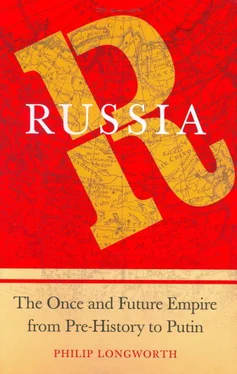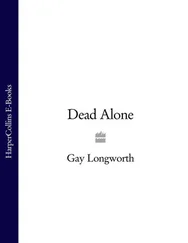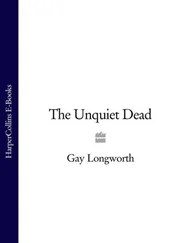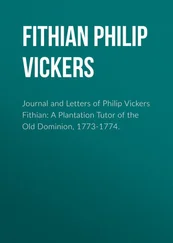Plettenberg, Walter von, 81
Pleven, 222
Plovdiv, 222
Poland, Poles, 1, 6, 9, 15, 77, 85, 121, 124, 125, 146, 166, 169, 170, 183, 231, 234, 265, 269, 276, 294, 295, 298, 325; as catalyst for Russian recovery, 123-6; ceding of territory to Russia, 147; economic problems in, 285; erased from the map of Europe, 168; German invasion of, 254; hostility towards, 94; insurrection in, 2—18; loss of, 190; nationalism in, 275; partition of, 178-9, 182-4; possible truce with, 85; attempted Russification of, 218-19; Solidarity movement in, 284; transition to freedom, 290; treaty with, 128, 148; and union with Lithuania, 103; uprisings in, 196—7; war with, 122—6, 128, 136, 137, 138-45
Poland-Lithuania, 66, 70, 79, 80, 98, 101, 108
Poliane, 20, 22
Polotsk, 41
Polovtsians, 42
Poltava, 155, 156
Poppel, Nicholas, 77
population, 43-4, 48, 49, 96, 283; additions to, 217; census data, 248, 253; decline in, 312, 315; drift north and east, 48, 52; ethnic/linguistic configurations, 272—4; genetic studies, 6, 8-10; increase in, 61, 105, no, 165, 177, 208, 214, 226-8, 324; migrations, 9-10, 58, 117, 130; mix, 164, 187; mortality rates, 248—50, 304; nomads, 17—18; physiological characteristics, 9; as rural-based, 246; size of, 129, 161
Port Arthur, 230-1
Portugal, 157
Potemkin, Prince Grigorii, 181, 191
Potsdam (1945), 263, 266
Pozharski, Prince Dmitrii, 125
Prague, 220, 262, 291, 292
‘Prague Spring’, 275
Preservation of Civil Rights (1722), 161
Presniakov, A.E., 67
Primakov, Yevgeny, 311, 312, 313
printing, 87, 114
printing office, 147-8
Pripet Marshes, 9
Prokofiev, Sergei, 246
pronoia/pomestie system, 73
proto-Russians, 18-19, 25
Provisional Government, 236-7
Prussia, 169, 178, 183, 208
Pruth river, 158
Pskov, 44, 53, 55, 62, 65, 68, 72, 81, 84, 116
Pugachev, Ye., 185
Pushkin, Aleksandr, 112, 165, 196-7
Putin, Vladimir, 311, 313, 326; domestic and foreign policies, 314-18; as interim President, 313—15; managed democracy under, 316-17; popularity of, 314
Putivl, 118
Radio Free Europe, 268
railways, 213-14, 222-5, 231
Rasht, 174
Rasputin, Grigorii, 233, 236
Ratzinger, Cardinal, 308
Razin, Stepan, 200
Reagan, Ronald, 282, 284
Red Army, 240, 244, 254; hardware/capacity, 253; see also army; Second World War; White army
Renfrew, Sir Colin, 14
Repnin, Mikhail, 100, 101
Reval, 98, 156
Rhalli family (Byzantine migrants to Russia), 75
Riazan, 65, 78
Richelieu, Due de, 205
Riga, 98, 104, 142, 156, 178, 219
Riurik the Viking, 2, 4, 28, 29, 39
Riurik’s town see Kiev
Rokossovskii, Marshal K.K., 257
Roman Empire, later see Byzantine Empire
Roman, Prince of Volhynia, 45
Romania, Romanians, 157, 181, 219, 221, 222, 253, 255, 263, 264, 265, 275, 277, 283, 292, 310
Romanov Empire, 320; disintegration of, 1; as epitome of power and aggression, 1; establishment of, 1; expansion of, 1, 168-9; see also named Tsars eg. Alexander I; Alexis; Catherine II (Catherine the Great); Nicholas I; Peter I (Peter the Great) etc. Romanov, Boyar Fedor Filaret, Patriarch of Moscow, 122, 123, 126
Romanov, Tsar Michael, 126
Romanov family, 114, 115, 126, 157
Rome, 27; see also Catholic Church/Papacy
Rondeau, Claudius, 168
Rostov, 44, 58, 60
Rostov-on-Don, 251, 257
Rublev, Andrei (painter), 50
Russia: advance halted, 210; advantages of, 324-6; anti-revolutionary stance of, 208; authoritarian measures in, 315-16; change of regime in, 312-15; civil wars, 1, 117-23, 238-9; clash with Chechens, 306-9, 313; and cost of transition to democracy, 304-6; and democracy, 322; early chroniclers of, 2, 5; economic improvements in, 322-3; effect of climate and landscape on, 322; emergence of state, 25-6; foreign interest in its distress, 124-5; foreign view of, 177; and free market policies, 302-4; imperial collapse, 1; international alliances, 231; international standing of, 306-7; invasion of, 1; Islamic links, 51; loss of European predominance, 222; managed democracy in, 316-17; Poland as catalyst for recovery, 123-6; political coherence of, 53-7; power of, 321-2; Presidential campaigns in, 309—10; prospects for, 323—6; recognised as European power, 146; recovery/revival of, 1-2, 50-1, 128-49, 317-18; and rise of provincial nationalism, 219; ruble crisis in, 311—12; social/industrial problems, 227-8; status of, 323; Tatar exploitation of, 49—50; territorial reductions, 302, 321; and terrorism, 231, 314, 317; as threat to British interests, 205-8; and treaty of ‘eternal peace’, 128; use of imperial symbol, 304-5; vulnerability of, 322
Russia Company, 174
Russian imperialism: and adoption of double-headed eagle, 3, 75, 87, 220-1; development of, 4, 68-70; and dilemma of devolvement or centralization of power, 197-9; expansion of, 169-70; and foreign policy, 74-8; language issues, 218-21; origins of, 2-3; phoenix-like nature of, 2; reversal in, 212-13; Russification policies, 184-5, 218-21; spread of 204—5; and territorial acquisition, 71-4; understanding of, 2; see also empire building
Russian Revolution, 238, 254; events leading up to, 233—7
Russia-America Company, 188
Russians, 24, 46; ancestors of, 10; character of, 21; European by descent, 5-6; identity, patriotism and nationalism, 86, 127, 247, 259; intermarriage of, 25; prejudice against blacks, 25; shaped by climate and ecology, 25; and shaving of beards, 85-6; tolerance of strangers, 25; and trade with the Vikings, 24-5
Russification policy: application of, 186—7; counter-productivity of, 218—19; a n d language issues, 183, 219—20; and nationalist movements, 219-21; and Poland, 184, 218-19; and regional administration, 184—5; and Ukraine, 184-5; a n d uniform centralism, 184; and Volga region, 186—7; see also foreign relations
Russo-Japanese War (1904), 1, 230-1
Russo-Persian Treaty (1827), 204
Rutskoi, Aleksandr, 305
Sachs, Jeremy, 295, 302
Safavid dynasty, 160
St Gabriel (ship), 162
St Petersburg, 150, 171, 172, 191, 197, 311; Academy of Sciences, 175; attitude towards Poland, 218; and control of Kazakhs, 160; creation of, 157; and killing of peaceful demonstrators in, 231, 233; New Year’s Day (1740) spectacle, 176; origin/development of, 153-4; railway connections, 213—14; Winter Palace, 231, 233; see also Leningrad
St Petersburg Council (Soviet) of Workers’ and Soldiers’ Deputies, 236
Saint-Cyr, General, 193
Sakhalin, 161, 225, 263
Salang Pass, 279
Samarkand, 222
Sarai, 46, 48, 50, 54
Sarajevo, 3 13
Saratov, 110 , 182
Sarkel, 22
Sarmatians, 18
Sarts, 217
Saudi Arabia, 307
Scandinavia, 27
Schalk, Colonel Gottlieb von, 137
Schlitte, Hans, 90
Schonberg, Nicholas, 85
Scythians, 17—18
Sea of Azov, 37, 205
Sea of Okhotsk, 161
Second Turkish War (1787-92), 185, 187-8
Second World War, 2, 8, 253-60, 261, 262-3, 274, 279
Secret Police sec Cheka; Federal Security
Service (FSB); KGB; NKVD
Selim II, Sultan, 95
Semen (great-grandson of Ivan ‘Money-Bag’), 63
Semino, Dr O., 6
Serbia, Serbs, 9, 157, 204, 220, 221, 222,
313
Sergius of Radonezh, St, 50, 58-61, 64,
319
settlements, societies: and beginnings of
serfdom, 106; Bronze Age, 12; burial
practices, 11-12; cluster developments,
18-19; defensive, 110-11; defensive
and governmental, 110 ; distribution of,
52; effect of climate on, 5-6, 15-17,
18; ethnographic studies on, 8-9; food
Читать дальше





![Stephan Orth - Behind Putin's Curtain - Friendships and Misadventures Inside Russia [aka Couchsurfing in Russia]](/books/415210/stephan-orth-behind-putin-s-curtain-friendships-a-thumb.webp)





